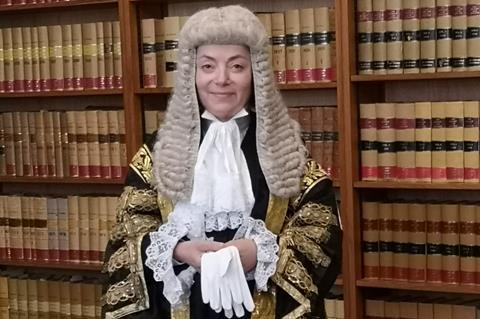Digital evidence in criminal cases can ‘obscure rather than illuminate’ – Sharp

Digital evidence in criminal cases will often increase the chances of justice being done but the courts must face that it can also ‘obscure rather than illuminate’, the president of the Queen’s Bench Division has warned.
Dame Victoria Sharp said the proliferation of technology has ‘transformed society and has led to distinct changes in how individuals behave and engage with the world around them’, presenting legal systems with ‘extraordinary challenges’.
This requires ‘adapting existing legal frameworks to new types of crime’ as well as ‘developing the expertise to combat such criminal activity, including internationally in this technologically connected world’, Sharp said in a speech to the National Criminal Justice Conference published today.
‘There are now very few crime scenes that might not be better described as digital crime scenes,’ Sharp said. In many cases, the quality and legal integrity of digital evidence can be essential to ‘the fair resolution of the case’.

However, Sharp cautioned that digital evidence must be ‘comprehensible and credible to the decision-makers in our system, who are, for the most part, ordinary members of the public sitting as lay magistrates or as jurors’.
The ‘vast amount’ of digital evidence available to investigators and prosecutors is a ‘potentially precious resource’, Sharp said, which may prove ‘more reliable than traditional evidence and thus further the interests of justice’. But Sharp emphasised that ‘jurors – and, indeed, judges dare I say it – have to understand the evidence that is put before them’.
‘Whilst digital evidence can enhance the prospect of justice being done, the scope for evidence that deals with the new technologies to obscure, rather than illuminate, must also be faced,’ she added.
Sharp suggested that ‘it would not be surprising’ if judges or jurors found it difficult to understand expert evidence or follow cross-examination aimed at ‘revealing flaws in scientific methodology, or then to determine how much weight to attach to it’. This gives rise to the ‘obvious risk that the resolution of an issue in dispute will simply involve deference to the opinion of a convincing expert’, she said.
The master of the rolls Sir Geoffrey Vos said last year, albeit in the context of commercial and financial disputes, that developments in technology – in particular, the recording of transactions on the blockchain – may make arguments ‘impossible’ meaning that ‘disputed transactions will become a thing of the past’.
See the article on the Law Gazette website below.
